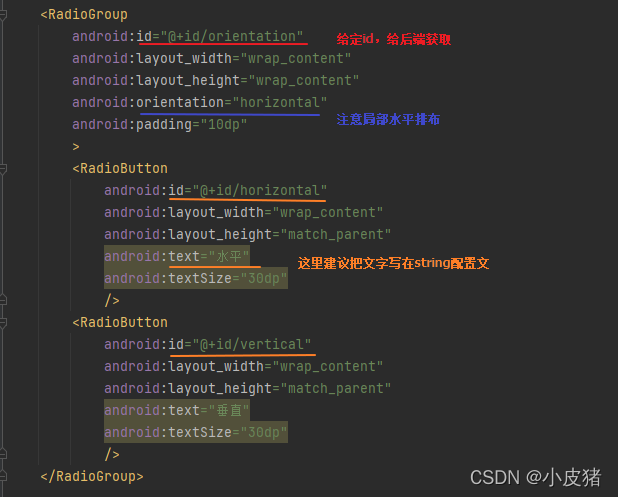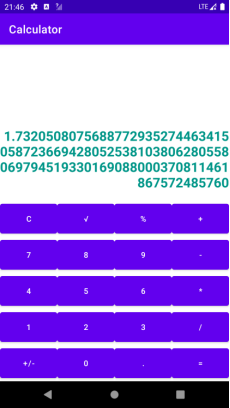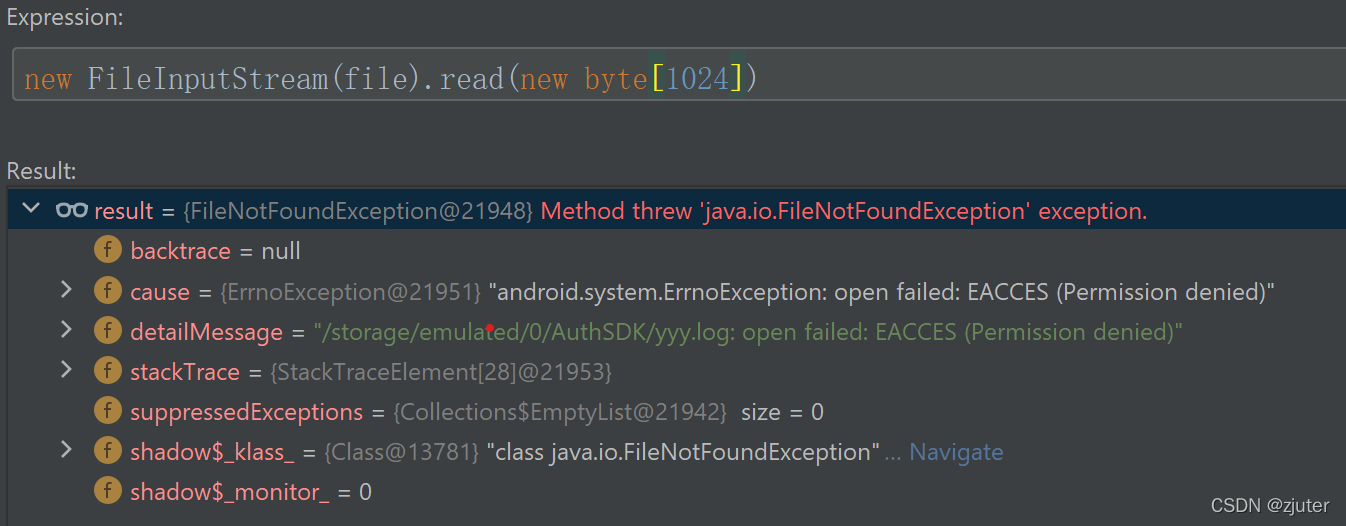开发Android使用Android-query框架能够快速的,比传统开发android所要编写的代码要少得很多,容易阅读等优势。
下载文档及其例子和包的地址:http://code.google.com/p/android-query/
以下内容是我学习的一些心得分享:
第一节:
// 必须实现AQuery这个类 AQuery aq = new AQuery(view); // 按顺序分析:取得xml对应控件id,设置图片,设置可以显示,点击事件(方法someMethod必须是public修饰) aq.id(R.id.icon).image(R.drawable.icon).visible().clicked(this, "someMethod"); // 设置文字内容 aq.id(R.id.name).text(content.getPname()); aq.id(R.id.time).text(FormatUtility.relativeTime(System.currentTimeMillis(), content.getCreate())).visible();
aq.id(R.id.desc).text(content.getDesc()).visible();
AQuery也支持Fragment:
@Override
public View onCreateView(LayoutInflater inflater, ViewGroup container, Bundle savedInstanceState) {
View view = inflater.inflate(getContainerView(), container, false);
aq = new AQuery(getActivity(), view);
return view;
}
第二节: 使用AQuery异步加载图片
2.1 从网上读取图片
aq.id(R.id.image1).image(“图片URL”);
2.2 缓存控制: 图片过大的话,避免记忆缓存
boolean memCache = false;
boolean fileCache = true;
aq.id(R.id.image1).image("http://www.vikispot.com/z/images/vikispot/android-w.png", memCache, fileCache);
2.3 当下载太多图片的时候需要降低图片采样率,第四个参数为了保证图片质量,一般范围时200-399
aq.id(R.id.image1).image(imageUrl, true, true, 200, 0);
2.4 如果下载图片失败,处理的方法:1. 设置一个预定的图片 2. 使imageview不可见或者是gone
aq.id(R.id.image1).image(imageUrl, true, true, 0, R.drawable.default_image);
aq.id(R.id.image1).image(imageUrl, true, true, 0, AQuery.INVISIBLE);
aq.id(R.id.image1).image(imageUrl, true, true, 0, AQuery.GONE);
2.5 图片预加载
// 从之前的url取得小图片
String thumbnail = "http://farm6.static.flickr.com/5035/5802797131_a729dac808_s.jpg";
Bitmap preset = aq.getCachedImage(thumbnail);
// 加载大图片前先显示小图片
String imageUrl = "http://farm6.static.flickr.com/5035/5802797131_a729dac808_b.jpg";
aq.id(R.id.image).image(imageUrl, false, false, 0, 0, preset, AQuery.FADE_IN);
2.6 在加载图片的时候显示进度条,progress里面传入id
String imageUrl = "http://farm6.static.flickr.com/5035/5802797131_a729dac808_b.jpg";
aq.id(R.id.image).progress(R.id.progress).image(imageUrl, false, false);
2.7 图片圆角显示,不支持大图片
ImageOptions options = new ImageOptions();
options.round = 15;
aq.id(R.id.image).image(url, options);
2.8 图片长宽比例
// 保留原图片比例
aq.id(R.id.image).image(imageUrl, true, true, 0, 0, null, AQuery.FADE_IN, AQuery.RATIO_PRESERVE);
// 自定义图片比例
//1:1, a square
aq.id(R.id.image2).image(imageUrl, true, true, 0, 0, null, 0, 1.0f / 1.0f);
aq.id(R.id.image3).image(imageUrl, true, true, 0, 0, null, 0, 1.5f / 1.0f);
//16:9, a video thumbnail
aq.id(R.id.image4).image(imageUrl, true, true, 0, 0, null, 0, 9.0f / 16.0f);
aq.id(R.id.image5).image(imageUrl, true, true, 0, 0, null, 0, 3.0f / 4.0f);
2.9 图片描点,如果图片过高,描点可用来描述图片的哪一部分用于显示
Anchor values:
1.0 : Display top of the image
0 : Display the center of the image
-1.0 : Display bottom of the image
AQuery.ANCHOR_DYNAMIC : Display image with a top bias for photos.
=======================================================
ImageOptions options = new ImageOptions();
options.ratio = 1;
options.anchor = 1.0;
aq.id(R.id.image1).image(imageUrl, options);
2.10 自定义图片加载后的处理
aq.id(R.id.image1).image(imageUrl, true, true, 0, 0, new BitmapAjaxCallback(){});
2.11 异步从文件加载图片,建议使用降低采样率避免oom
File file = new File(path);
//load image from file, down sample to target width of 300 pixels
aq.id(R.id.avatar).image(file, 300);
//load image from file with callback
aq.id(R.id.avatar).image(file, false, 300, new BitmapAjaxCallback(){
@Override
public void callback(String url, ImageView iv, Bitmap bm, AjaxStatus status){
iv.setImageBitmap(bm);
}
});
2.12 如果之前image("url")已经成功,之后的都可以直接使用而不需要重新访问网络,也就是说之后可以离线访问此图像资源
2.13 文件中获取缓冲图片
File file = aq.getCachedFile(url);
2.14 除了imageview,webview也可以用来放图片
aq.id(R.id.web).progress(R.id.progress).webImage(url);
2.15 延迟图片加载,帮助你是否加载正在快速滚动的listview,详情参考文档使用
2.16 图片不使用缓存
aq.id(R.id.image).image(url, false, false);
2.17 缓存配置,缓存一般是保存在内部文件系统,但也可以保存在SDCard里面
File ext = Environment.getExternalStorageDirectory();
File cacheDir = new File(ext, "myapp");
AQUtility.setCacheDir(cacheDir);
2.18 共享图片,为了与其他程序共享图片,你需要把文件放在SDCard,makeSharedFile方法创建缓存地址的一个副本
File file = aq.makeSharedFile(url, "android.png");
if(file != null){
Intent intent = new Intent(Intent.ACTION_SEND);
intent.setType("image/jpeg");
intent.putExtra(Intent.EXTRA_STREAM, Uri.fromFile(file));
startActivityForResult(Intent.createChooser(intent, "Share via:"), SEND_REQUEST);
}
2.19 配置,最好把配置写在application的onCreate方法,详细参考文档
2.20 程序退出时候需要把缓存清除
if(isTaskRoot()){
AQUtility.cleanCacheAsync(this);
}
或者:
if(isTaskRoot()){
//clean the file cache with advance option
long triggerSize = 3000000; //大于3M时候开始清除
long targetSize = 2000000; //直到少于2M
AQUtility.cleanCacheAsync(this, triggerSize, targetSize);
}
2.21 低内存处理
public class MainApplication extends Application{
@Override
public void onLowMemory(){
//clear all memory cached images when system is in low memory
//note that you can configure the max image cache count, see CONFIGURATION
BitmapAjaxCallback.clearCache();
}
}
以上内容就是小编跟大家介绍的Android之使用Android-query框架开发实战(一),希望大家喜欢,下篇文章跟大家介绍Android之使用Android-query框架开发实战(二),感兴趣的朋友请持续关注本站。





